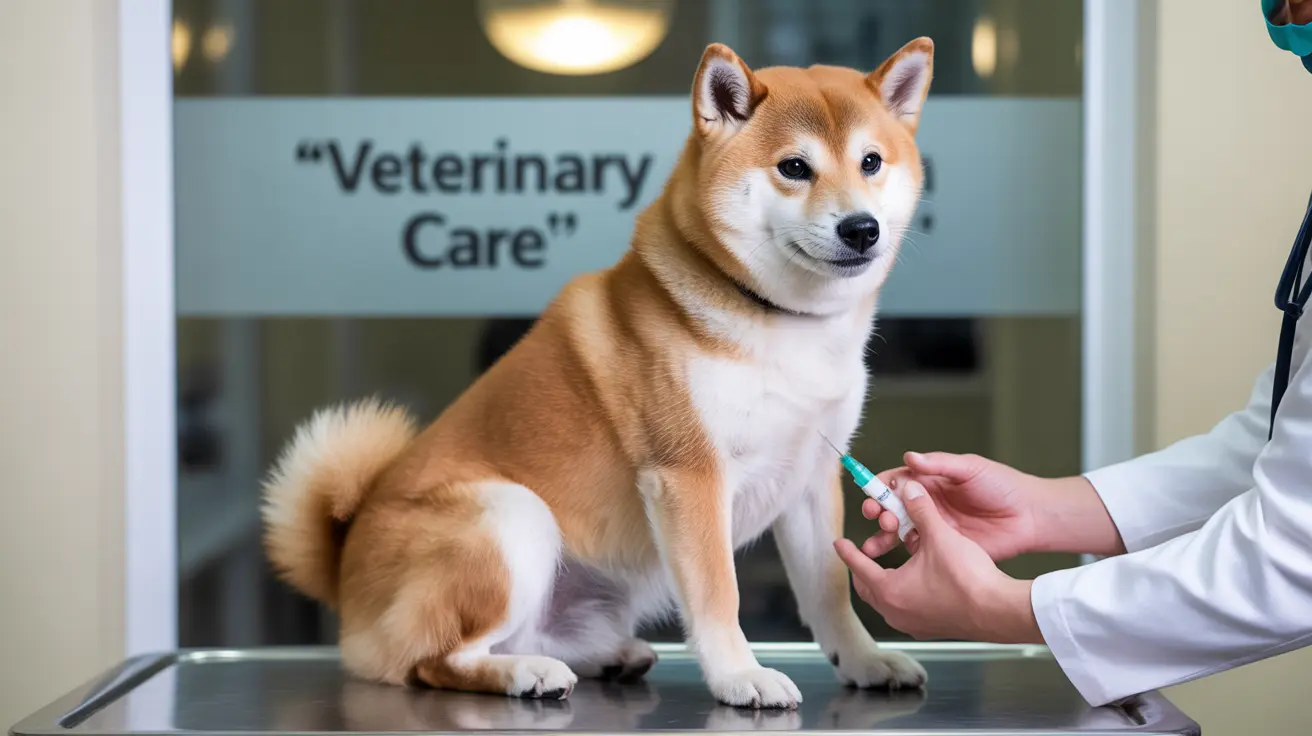Understanding the Bordetella Vaccine
The Bordetella vaccine for dogs is a crucial preventive measure against kennel cough, a highly contagious respiratory infection that commonly affects dogs in social settings. This non-core vaccination specifically targets Bordetella bronchiseptica bacteria, the primary cause of kennel cough, providing essential protection for dogs at risk of exposure.
While not mandatory for all dogs, this vaccine plays a vital role in protecting canines that frequently interact with other dogs or visit high-risk environments such as boarding facilities, dog parks, or grooming salons. Understanding its importance and proper administration can help keep your dog healthy and protected against this common respiratory condition.
How the Bordetella Vaccine Works
The Bordetella vaccine stimulates your dog's immune system to produce antibodies against the Bordetella bronchiseptica bacteria. Available in both injectable and intranasal forms, the vaccine helps prevent the development of kennel cough symptoms or reduces their severity if infection occurs.
The intranasal version provides local immunity directly in the nasal passages, where the infection typically begins, while the injectable form creates systemic immunity throughout the body. Your veterinarian will recommend the most appropriate form based on your dog's age, health status, and specific needs.
Vaccination Schedule and Timing
Puppies typically receive their first Bordetella vaccine between 6-8 weeks of age, with a booster shot following at 10-12 weeks. Adult dogs generally require annual vaccination, though some high-risk dogs may need boosters every six months.
The timing of vaccination is particularly important for dogs planning to enter boarding facilities or attend group activities, as many require proof of current Bordetella vaccination at least two weeks before admission.
Benefits and Protection
The primary benefit of the Bordetella vaccine is the prevention of kennel cough and its potentially serious complications. For young puppies, senior dogs, and those with compromised immune systems, this protection is particularly crucial as they're more susceptible to severe symptoms and complications.
Beyond individual protection, vaccination helps maintain community health by reducing the spread of infection in areas where dogs congregate. This collective immunity is especially important in protecting vulnerable dogs who cannot receive vaccines due to health conditions.
Potential Side Effects and Considerations
Most dogs tolerate the Bordetella vaccine well, but some may experience mild side effects such as lethargy, mild fever, or slight nasal discharge, particularly with the intranasal form. These symptoms typically resolve within 24-48 hours.
In rare cases, more serious reactions can occur, including facial swelling, hives, or difficulty breathing. While these reactions are uncommon, it's important to monitor your dog after vaccination and contact your veterinarian if you notice any concerning symptoms.
Frequently Asked Questions
What is the purpose of the Bordetella vaccine for dogs, and how does it help prevent kennel cough?
The Bordetella vaccine specifically targets Bordetella bronchiseptica bacteria, the main cause of kennel cough. It works by stimulating the immune system to produce antibodies that protect against infection, either preventing the disease entirely or reducing its severity if infection occurs.
How often should I vaccinate my dog against Bordetella, and what factors influence the frequency?
Most dogs need annual Bordetella vaccination, but frequency can vary based on risk factors. Dogs frequently exposed to other dogs (through boarding, grooming, or dog parks) may need vaccination every six months. Your veterinarian will recommend an appropriate schedule based on your dog's lifestyle and risk factors.
Can my dog still get kennel cough even if they have received the Bordetella vaccine?
Yes, while the vaccine significantly reduces the risk, it's still possible for vaccinated dogs to contract kennel cough, as multiple pathogens can cause the condition. However, vaccinated dogs typically experience milder symptoms and recover more quickly if infected.
What are the common side effects of the Bordetella vaccine for dogs, and how serious can they be?
Common side effects are usually mild and may include lethargy, mild fever, or nasal discharge, particularly with intranasal vaccines. Serious reactions are rare but can include facial swelling, hives, or breathing difficulties. Most side effects resolve within 24-48 hours.
Which dogs are most likely to benefit from the Bordetella vaccine, and why is it not considered a core vaccination for all dogs?
Dogs that frequently interact with other dogs or visit high-risk environments (kennels, dog parks, grooming facilities) benefit most from the vaccine. It's not considered core because not all dogs need it – those that are primarily house pets with limited exposure to other dogs may not require this specific protection.
Conclusion
The Bordetella vaccine for dogs represents a vital tool in preventing kennel cough, particularly for socially active dogs. While considering your dog's specific needs and lifestyle factors, consulting with your veterinarian can help determine the most appropriate vaccination schedule to ensure optimal protection against this common respiratory infection.






